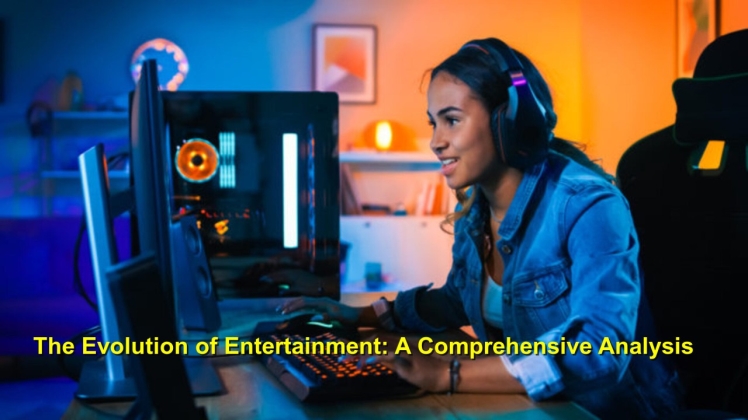The world of has undergone a remarkable evolution over the years, driven by the relentless march of technology. From traditional forms of entertainment like theater, literature, and music to the digital age dominated by virtual reality, streaming services, and gaming, the journey has been nothing short of transformative. This article explores the fascinating intersection of tradition and technology in the realm of entertainment, examining how the two have converged to create a rich tapestry of experiences for audiences worldwide.
The Rise of Traditional Entertainment:
Before the advent of technology, entertainment was synonymous with traditional forms that transcended generations. Theaters were the epicenter of cultural experiences, where audiences gathered to witness live performances, be it a Shakespearean play or a musical extravaganza. Literature, too, played a pivotal role, with books becoming portals to different worlds and ideas. Music, an age-old art form, provided solace and joy through live performances and recordings.
Traditional entertainment, rooted in human creativity and expression, held a special place in society. It was a shared experience that brought communities together, fostering a sense of cultural identity and unity. These forms of entertainment were deeply embedded in the fabric of society, shaping narratives and reflecting the values of different eras.
The Technological Revolution:
The 20th century witnessed the advent of groundbreaking technologies that forever altered the landscape of entertainment. The invention of the television brought moving images and stories directly into people’s homes, revolutionizing the way they consumed content. As technology progressed, so did the mediums of entertainment, with cinema, radio, and eventually the internet reshaping the industry.
The digital revolution of the late 20th century and early 21st century marked a paradigm shift. The internet became a global stage, enabling the distribution of content on an unprecedented scale. Streaming services emerged, allowing users to access a vast library of movies, TV shows, and music at their fingertips. This shift not only transformed how entertainment was consumed but also how it was produced, democratizing the creative process and giving rise to a new generation of independent creators.
Bridging Tradition and Technology:
Rather than replacing traditional forms of entertainment, technology has complemented and enhanced them, creating a dynamic synthesis of old and new. Theaters adapted by incorporating state-of-the-art sound and projection systems, enhancing the cinematic experience. Literature found new life in e-books and audiobooks, reaching a wider audience through digital platforms. Music evolved with the rise of digital recording and distribution, enabling artists to experiment with new sounds and genres.
One of the most significant bridges between tradition and technology is evident in the resurgence of live performances. Concerts, theater productions, and even stand-up comedy have found new life in the digital realm. Livestreaming platforms enable artists to connect with a global audience, transcending geographical boundaries and time zones. This fusion of the live experience with digital accessibility has broadened the reach of traditional entertainment forms, ensuring their relevance in the modern era.
The Gaming Revolution:
Perhaps the most transformative impact of technology on entertainment has been witnessed in the gaming industry. Video games have evolved from simple pixelated experiences to immersive, cinematic adventures that rival traditional storytelling mediums. The gaming community has grown exponentially, with players engaging in virtual worlds that offer a unique blend of narrative and interactivity.
Virtual reality (VR) and augmented reality (AR) have taken gaming to unprecedented levels, allowing users to step into the worlds they once only imagined. This intersection of technology and gaming has not only provided new avenues for entertainment but has also blurred the lines between traditional storytelling and interactive experiences.
The Future of Entertainment:
As we look to the future, the convergence of tradition and technology in entertainment shows no signs of slowing down. Artificial intelligence, machine learning, and augmented reality are poised to redefine how we experience and interact with entertainment. Virtual concerts, AI-generated content, and immersive storytelling experiences are on the horizon, promising to push the boundaries of creativity and engagement.
In conclusion, the evolution of entertainment reflects a delicate dance between tradition and technology. While technology has introduced new possibilities and platforms, traditional forms of entertainment continue to thrive, adapting to the digital age. The synergy between the two not only preserves the richness of cultural heritage but also propels the industry into uncharted territories, ensuring that entertainment remains a vibrant and integral part of the human experience.

